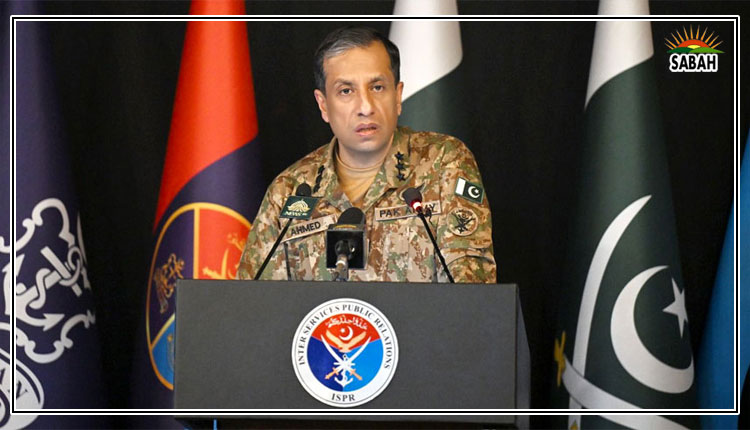Global AI governance…By Dr Imran Khalid
On November 8, in a groundbreaking move, a United Nations committee took its first definitive step toward regulating artificial intelligence (AI) in military applications.
Spearheaded by South Korea and the Netherlands, the resolution – adopted by an overwhelming majority of 165 countries, including the US, Japan, and China – signals a growing global consensus over the potential impact of AI on military and security dynamics. Set to be presented for a vote at the full General Assembly next month, the resolution underscores the need to apply international law to military AI, aiming to balance innovation with the risks it entails.
The resolution outlines measures to bridge the AI gap between developing and advanced nations, emphasising capacity-building efforts and urging the responsible use of AI in military contexts. Notably, it also requests a U. report compiling perspectives from member states, international organisations, and academic experts on the role of AI in military scenarios. This development marks the third major step by the UN towards the global governance of AI.
Earlier this year, on July 3, the United Nations General Assembly adopted another resolution advocating for a “free, open, inclusive, and non-discriminatory” environment for AI development. Crucially, this resolution called on wealthier nations to address the widening AI gap with developing countries, promoting a more equitable landscape for emerging technologies. This followed an earlier milestone in March when the UN adopted its first-ever AI-focused initiative. Co-sponsored by 123 nations, this resolution emphasised making AI “safe, secure, and trustworthy” while ensuring its benefits are accessible to all.
The adoption of these two non-binding resolutions represents a turning point in global collaboration on AI governance. Meanwhile, in parallel with these efforts, the European Union’s Artificial Intelligence Act (AI Act) officially came into effect on August 1, 2024. This landmark legislation, proposed by the European Commission in April 2021, underscores the EU’s commitment to steering AI development responsibly. Following months of negotiations, the Act received the backing of the European Parliament and Council in December 2023, marking a pivotal moment in AI regulation.
At its core, the AI Act aims to mitigate the risks AI poses to citizens’ health, safety, and fundamental rights. It sets out specific guidelines for developers and users, with obligations tailored to the AI system’s intended application. While promoting stringent safety and ethical standards, the Act also seeks to minimise unnecessary financial and administrative burdens for businesses working in AI. The ultimate goal is to foster innovation and growth in the field while ensuring these advancements align with broader societal values and safeguards.
The European Union’s Artificial Intelligence Act is a bold declaration in a world increasingly shaped by AI, marking a critical step toward rigorous monitoring of a technology transitioning from novelty to necessity. The legislation not only addresses current AI advancements but also anticipates future challenges posed by general-purpose AI and other systems requiring robust ethical and safety frameworks. By managing this complex duality – fostering innovation while addressing potential risks – the Act sends a clear message: AI development must align with public safety and ethical standards.
The stakes are undeniably high. The AI Act is more than just a regional European initiative; it is a call to action for global accountability. By prioritising transparency and integrity, the legislation challenges major players in the AI space to adhere to stringent standards, which, in turn, can yield something even more valuable than market access: public trust. As AI becomes increasingly embedded in everyday life, the demand for clear, ethical, and safe practices is escalating.
This concern is not limited to Europe. From the US to Asia, there is a growing consensus that robust regulatory oversight is essential, positioning the EU as a potential blueprint for other nations grappling with AI’s rapid integration. For policymakers worldwide, the EU’s approach offers valuable lessons. Those who act swiftly to establish clear, responsible boundaries for AI will shape the technology’s future – not as an unchecked force but as a tool aligned with societal needs.
The AI Act highlights a timeless truth: with great technological power comes even greater responsibility. In blending caution with ambition, the EU’s regulatory framework serves as a model for balancing innovation with a commitment to public safety and ethics. It reinforces a powerful message: innovation need not come at the expense of trust.
The governance of AI, however, extends beyond technical considerations – it is deeply entwined with geopolitical strategy. In the global race led by the US, China, and the EU, Western powers are not just drafting regulations; they are building alliances that form the foundation of a new digital order. This is a world where competition and cooperation coexist, and trust becomes both a bridge and a battleground.
In an era where AI holds staggering potential, national trust can be dissected into pragmatic dimensions: rational trust, value-based trust, and the elusive environmental trust. Building a global AI security framework requires a multilayered approach to trust, rooted not in idealism but in calculated national interests.
While nations prioritise their strategic goals, they must foster an atmosphere of collaboration to create a sustainable and robust approach to AI. This emerging model does not promise harmony but aims for mutual respect that transcends borders. By managing this delicate balancing act of cooperation and competition, global AI governance can evolve into an inclusive and effective framework.
Such an approach provides a pathway to shared security and benefit, weaving AI’s immense power into the fabric of international engagement. The hope is that its advantages will be widely and responsibly distributed. However, as competition among major nations intensifies, trust becomes pivotal in managing AI’s disruptive effects. Although international relations are often marked by mutual suspicion, trust can serve as a counterweight, transforming competition into a cooperative force.
A trust-based framework for global AI governance requires a delicate blend of cooperation, ethics, and strategic foresight. For this framework to succeed, nations must agree on unified technical standards and ethical guidelines while prioritising data security and privacy protections. Public participation and social oversight are also critical to establishing the transparency needed for trust to flourish.
The real challenge lies in maintaining a balance between innovation and responsibility. Effective AI governance must not only encourage technological progress but also implement rigorous risk assessments and response mechanisms to guard against potential harms. Strengthening mutual trust through value-based and environmental considerations can deepen international cooperation, creating a more resilient governance structure.
In an interconnected world increasingly shaped by AI, global collaboration is imperative. By building a framework rooted in trust and shared responsibility, nations can ensure that AI serves humanity’s best interests. This approach promises not just technological advancement but also a more secure and equitable world. Ultimately, fostering trust among nations will safeguard against risks while maximising the benefits of AI for all.
Courtesy












